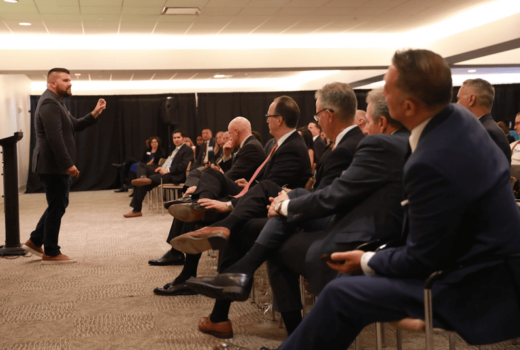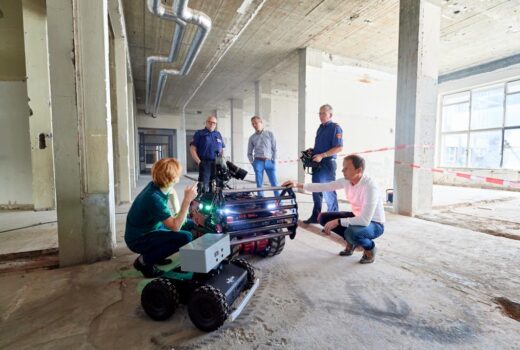Britten vrezen voor hun wetenschap

The Council for Science and Technology (CST) is één van debelangrijkste adviesorgaan van de Britse regering. In haar rapportA Vision for UK Research voorspelt zij een weinigrooskleurige toekomst voor het Engelse wetenschapsbedrijf als dehuidige beleidsvoering wordt aangehouden. Zonder een adequate langetermijnvisie van de overheid en zonder een nieuweHO-beleidsstrategie zal Engeland voorbijgestreefd worden, schrijftde adviesraad aan de Britse ministers. Aziatische grootmachten alsChina en India liggen op de loer.
De Engelse wetenschap is van absolute wereldtop vanwege haar hogeoutput. Gezien de financiering wordt er een disproportioneel hoogaantal publicaties geproduceerd, concludeert de Engelsewetenschapsraad. ‘Citations have risen – we have 13% of the mostcited papers – and are responsible for 8% of world publications.The UK is first in biological sciences and social science. however,there are some disciplines where the UK is lower, for example inmathematics, physical sciences and engineering.’
Bedreigingen voor Britten
Juist op het Britse zwakke punt van engineering is dedreiging van China en India op korte termijn het grootst, meentCST. Op midden- en lange termijn dreigt Engeland ingehaald teworden op andere gebieden. ‘The science research base in China isnot yet a great threat, but will become so. China aims to be atleast in the top five globally in terms of science and industrialinnovation, with every sign that the target for science at leastwill be exceeded. India has been described as ‘consolidatingits place at the high table of international science’. It hasthe human capital, the necessary funding and the policy agendanecessary to establish this position’.
Een ander gevaar voor de Engelse concurrentiepositie is deeconomische situatie in het land zelf en de consequenties hiervanvoor de onderwijs- en onderzoekssector. Waar andere landen grotestimuleringspakketten voor R&D hebben samengesteld om beter uitde crisis te komen, zijn extra investeringen in het Engelse HOuitgebleven en zal er zelfs flink bezuinigd moeten worden. Hoebegrijpelijk deze bezuinigen ook mogen zijn, de gevolgen ervan voorde economie mogen niet onderschat worden, waarschuwt CST.
‘If the UK’s position slips, it will be less of a magnet foroverseas investment. […]The quality and availability ofresearchers in the UK is the prime driver for attracting foreigndirect investment; much more so than other incentives such as theoffer of grants. We believe that research-based businesses survivedifficult times better than other types of business, even whencapital is withdrawn. The UK therefore needs to ensure it maintainsits world ranking, has a number of universities that areworld-leaders, and a cadre which can compete with the leadinguniversities around the world.’
Kink in de kabel
De CST heeft in haar rapport enkele concrete aanbevelingenopgenomen die de Engelse wetenschap kunnen versterken. Eenopvallende observatie van de wetenschapsraad is dat er in Engelandergens een kink in de kabel zit als het gaat om het vertalen vanwetenschap naar innovatie. ‘It is widely recognised that theweakness of UK research policy has been in translating researchoutputs into economic and social benefit, and that this needs to beaddressed urgently.’ Als het Engelse bedrijfsleven meer geldbeschikbaar maakt voor R&D en beter gebruik zou maken van dekansen die wetenschappelijk onderzoek hen biedt, is hier nog veelwinst te behalen.
Om het bedrijfsleven hierbij tegemoet te komen zou de overheid nietalleen een lange termijn visie voor wetenschap moeten maken, maarzou deze ook een visie moeten vaststellen voor het komendedecennium met daarin een strategisch kader waarbinnen researchinvesteringen door de private sectoren het meest lonen. ‘Thisshould focus on a number of key strategic areas, for example:technologies underpinning 21st century national infrastructure,solving major global problems (for example climate change andshifting resources to those areas where the UK has capability tobuild new industries, example green technologies, the creativeindustries or plastic electronics) and addressing major socialchallenges including food security, healthcare and an ageingpopulation.’
Inzetten op excellent talent
Tevens pleit de CST voor het uitbreiden van het huidigemaster/PhD-traject van drie naar vier jaar. In de eerste twee jaarzou er naast research ook aandacht gevestigd moeten worden opmanagement en ondernemerschap. Na twee jaar zou iemand kunnenstoppen met een mastergraad op zak. ‘This would ensure that thebest and most committed people proceed to a Doctorate. The designof the first one or two years should ensure that the award of thedegree has distinctive value in itself and offers an exit routeboth in terms of choice by the candidate and assessment ofsuitability to continue to a Doctorate in terms of the merit of theproject and the candidate.’
Ook opvallend is dat het rapport adviseert om binnen het HO defocus niet te leggen op kansrijke onderzoeksgebieden, maar opkansrijke onderzoekers. Het aantrekken en behouden van de grootstetalenten die ook nog eens crossdisciplinair kunnen opereren enexcelleren, verdient de allerhoogste prioriteit. CST-lid HermannHauser zei hierover tegen
A Vision for UK Research telt naast bovengenoemde punten nog veelandere tips, aanbeveling en prioriteiten voor de overheid,universiteiten en bedrijven in Engeland. Concluderend stelt CST datde huidige economische crisis en internationale concurrentie vanvooral China en India niet onbeantwoord kunnen blijven. Stilstandis hier echt achteruitgang.
‘In times of austerity, difficult choices will need to be made andthere is a need to develop mechanisms to help determine wherepriority investments should be made, so that the research base isbest-placed to drive the UK’s future competitive advantage as weemerge from the global recession. An approach along the lines ofbusiness-as-usual is no longer an option.’
Het volledige rapport A Vision for UK Research vindt u
Meest Gelezen
Vrouwen houden universiteit draaiende, maar krijgen daarvoor geen waardering
Hbo-docent wil wel rolmodel zijn, maar niet eigen moreel kompas opdringen
Wederom intimidatie van journalisten door universiteit, nu in Delft
‘Waarom het nu niet lukt om medezeggenschap in hbo te versterken’
‘Sluijsmans et al. slaan de plank volledig mis’



